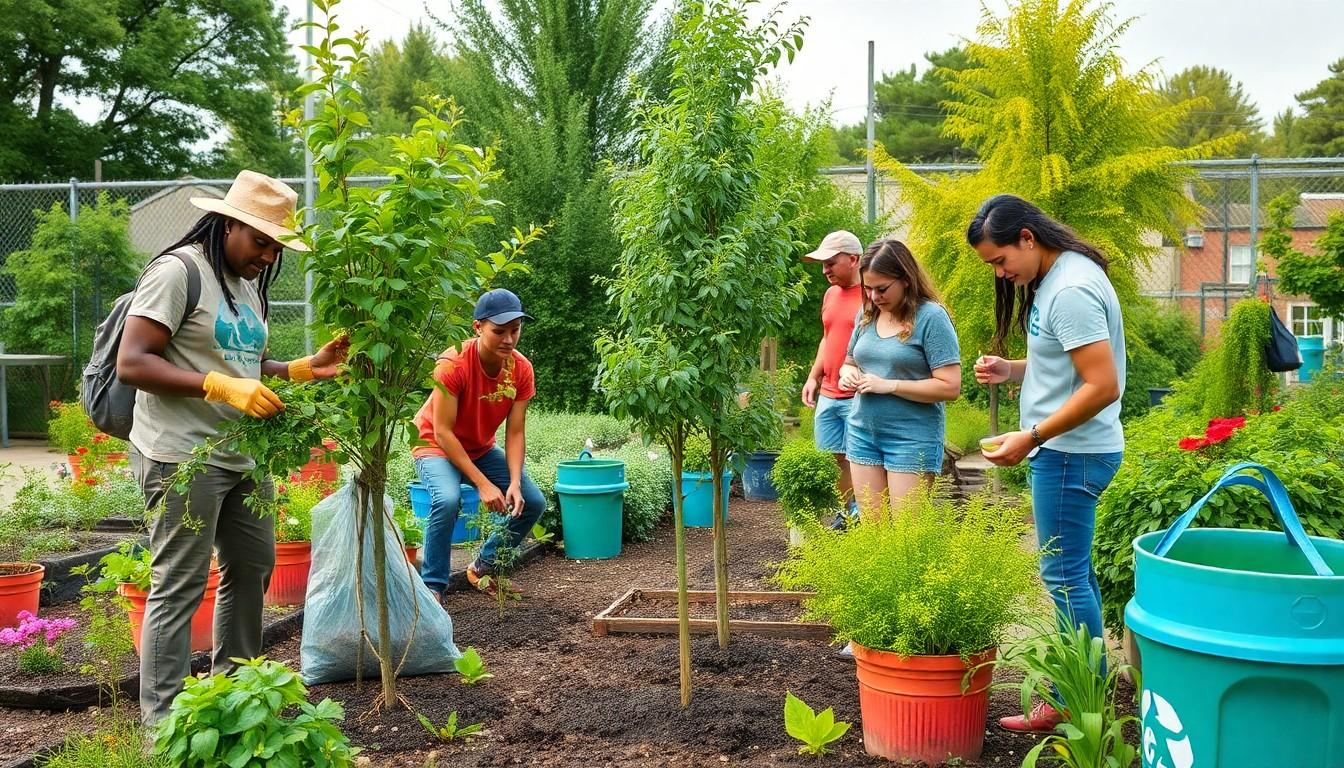Table of Contents
ToggleSustainable living isn’t just a trend; it’s a lifestyle choice that’s here to stay. With the planet on a rollercoaster ride, people are looking for ways to hop off and make a difference. Enter the world of prefixes! These nifty little additions to words can transform the mundane into the meaningful, and they’re popping up everywhere in the sustainability conversation.
Overview of Sustainable Living
Sustainable living represents a commitment to harmony with the environment. This lifestyle choice focuses on reducing one’s ecological footprint and fostering long-term planetary health.
Importance of Sustainable Living
Sustainable living plays a crucial role in combating climate change and environmental degradation. It prioritizes the usage of renewable resources, which helps to conserve ecosystems. Individuals adopting sustainable practices contribute to biodiversity protection and resource preservation. Communities benefit from reduced pollution and increased green spaces. Together, these actions promote a healthier planet for future generations.
Key Concepts in Sustainable Living
Key concepts in sustainable living include conservation, renewable energy, and waste reduction. Conservation emphasizes the responsible use of natural resources to minimize depletion. Renewable energy sources, such as solar and wind, offer alternatives to fossil fuels. Waste reduction focuses on practices like recycling and composting, which limit landfill contributions. Together, these concepts create a framework for individuals and communities to live more sustainably.
Common Prefixes Related to Sustainable Living

Understanding prefixes enhances discussions about sustainable living. Common prefixes like eco-, bio-, non-, and re- contribute significantly to the language of sustainability.
Eco-
Eco- refers to ecological concepts. This prefix embodies practices that promote environmental health. For example, eco-friendly products reduce harmful impacts on ecosystems. Consumers often prioritize eco-conscious choices, supporting sustainable brands. Creating eco-systems fosters biodiversity and sustains natural resources. Advocates for eco-centered lifestyles focus on preserving resources for future generations.
Bio-
Bio- connects to biological and organic practices. This prefix highlights the importance of local and healthy food systems. Organic farming enhances soil quality and reduces chemical usage. Biodiversity plays a vital role in sustaining ecosystems, showcasing the interconnectedness of life. People increasingly favor bio-based products to support ethical agriculture. The shift toward bio-friendly choices strengthens community resilience.
Non-
Non- signifies alternatives that avoid harmful practices. This prefix relates to non-toxic materials that protect human health and the environment. Non-renewable resources, like fossil fuels, contribute to environmental degradation. Advocating for non-polluting technologies helps decrease pollution and waste. Individuals often choose non-disposable items, supporting sustainable consumption methods. Prioritizing non-harmful options leads to healthier lifestyles.
Re-
Re- emphasizes regeneration and restoration efforts. This prefix underscores the importance of recycling and reusing materials. Efforts to replant forests help restore habitats and combat climate change. Renewable energy sources like solar and wind support sustainable energy practices. Reducing waste through rethinking consumption maintains resource efficiency. Commitment to rethinking production emphasizes a circular economy approach.
Impact of These Prefixes on Sustainable Practices
The integration of prefixes into discussions about sustainability enhances the understanding and motivation behind eco-friendly choices. Each prefix embodies principles that resonate with those committed to a sustainable lifestyle.
Eco-Friendly Products
Eco-friendly products minimize environmental harm while providing functionality. These items often utilize sustainable materials that reduce waste and energy consumption during production. Shoppers increasingly seek products with eco labels, which indicate reduced carbon footprints. For example, biodegradable cleaning supplies decompose naturally, benefiting soil health. Consumer demand influences manufacturers to shift towards greener alternatives, thereby promoting a wider market for sustainable options.
Bio-Based Materials
Bio-based materials derive from renewable biological resources, contributing to sustainability by replacing conventional, non-renewable materials. These substances, including bioplastics and natural fibers, significantly lower reliance on fossil fuels. Using local bio-based materials often supports regional economies while reducing transportation emissions. For instance, hemp and bamboo grow quickly and require fewer resources compared to traditional crops. Emphasizing bio-based solutions fosters innovation in sectors like packaging, textiles, and construction.
Non-Toxic Alternatives
Non-toxic alternatives prioritize health and safety by eliminating harmful substances from products. Safe options benefit consumers, particularly families with children and pets, by reducing exposure to hazardous chemicals. Cleaning supplies and personal care items labeled as non-toxic enjoy rising popularity as individuals recognize the importance of safeguarding indoor air quality. Choosing these alternatives not only protects personal health but also encourages manufacturers to create safer formulations, resulting in broader changes across various industries.
Recyclable and Renewable Resources
Recyclable and renewable resources play a critical role in reducing waste and preserving the environment. Their use promotes circular economies, where materials are repurposed instead of discarded. Paper, glass, and metals commonly feature recycling programs, significantly reducing landfill contributions. Resources such as solar and wind energy highlight renewable options, setting examples for sustainable power strategies. Embracing recyclable and renewable resources reinforces the commitment to minimizing environmental impact while fostering responsible consumption practices.
Embracing prefixes related to sustainable living not only enriches the conversation but also empowers individuals to make informed choices. By understanding terms like eco-, bio-, non-, and re-, people can better appreciate their role in fostering a healthier planet. These linguistic tools help clarify the impact of everyday decisions on the environment.
As awareness grows about the importance of sustainability, incorporating these prefixes into daily discussions can inspire collective action. Each small change contributes to a larger movement toward a more sustainable future. By staying informed and engaged, individuals can continue to champion practices that promote ecological balance and resource preservation.







